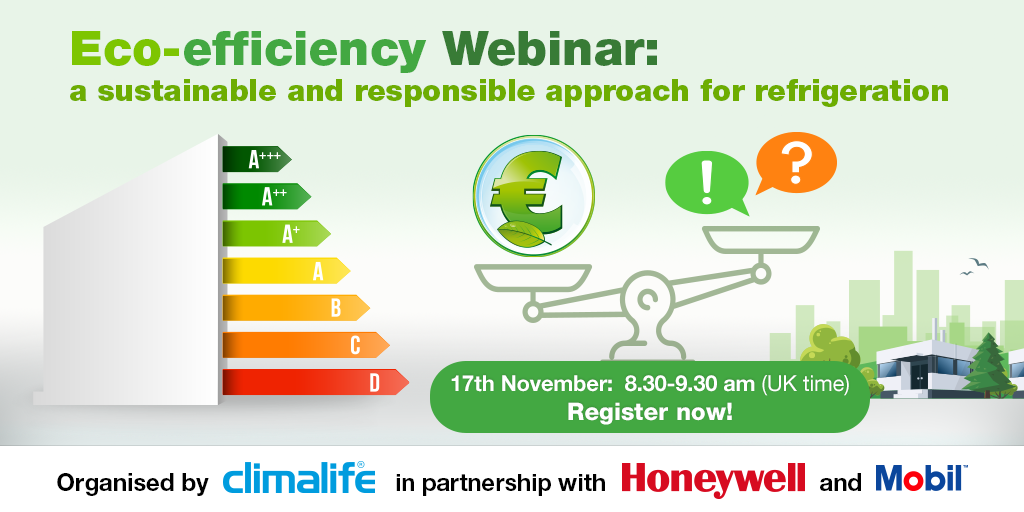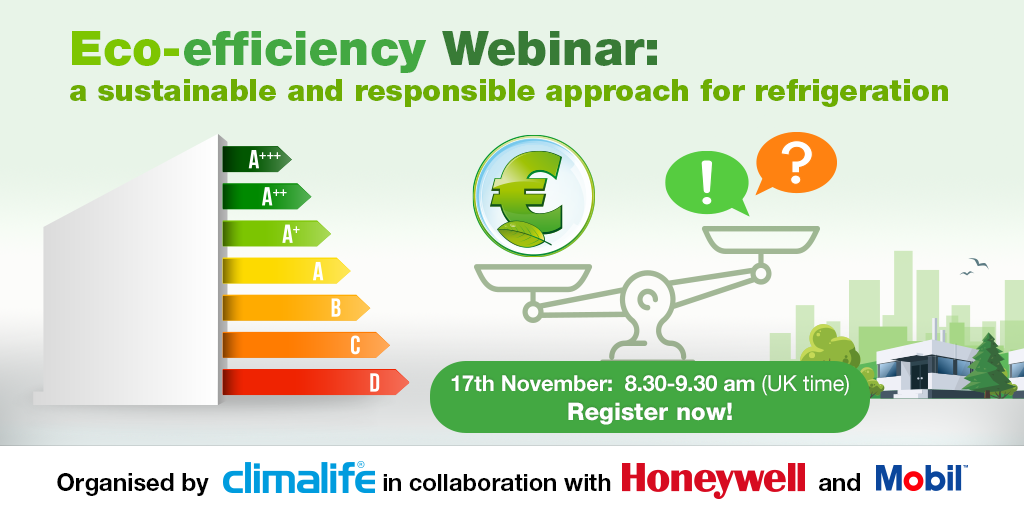For decades, the HVACR industry has focussed on reducing its environmental impact, a trend that has increased since 2015 with the implementation of the F-Gas regulation in Europe and more recently with the signing of the Kigali amendment at an international level. This work is essential to meet future needs, but must not stop there.
In 2018, 80% of greenhouse gas emissions in the EU were linked to the energy production and consumption sector (source EAA Europa). Energy efficiency is the challenge of today and tomorrow; and is a cost-effective way of fighting climate change.
The aim of this webinar is to present an eco-efficient approach to sustainable and responsible refrigeration. Eco-efficiency covers both the environmental impact (direct and indirect greenhouse gas emissions) and the financial impact (CAPEX investment costs and OPEX operating costs).
What refrigeration system architecture should be chosen, taking into account this approach?
This question arises for both existing installations and new installations. Our experts will discuss each of the parameters to be considered during an investment project: such as the choice of refrigerant, heat transfer fluid and oil, but also looking at such things as the geographical location, architecture and the operating constraints or regulations.
Date and time:
In English, 17 November 2020 from 9:30 to 10:30 (CEST) / 8.30 to 9.30 (UK).
A session in French will take place on 26 November from 9:00 to 10:00. Check our french website for registration.


